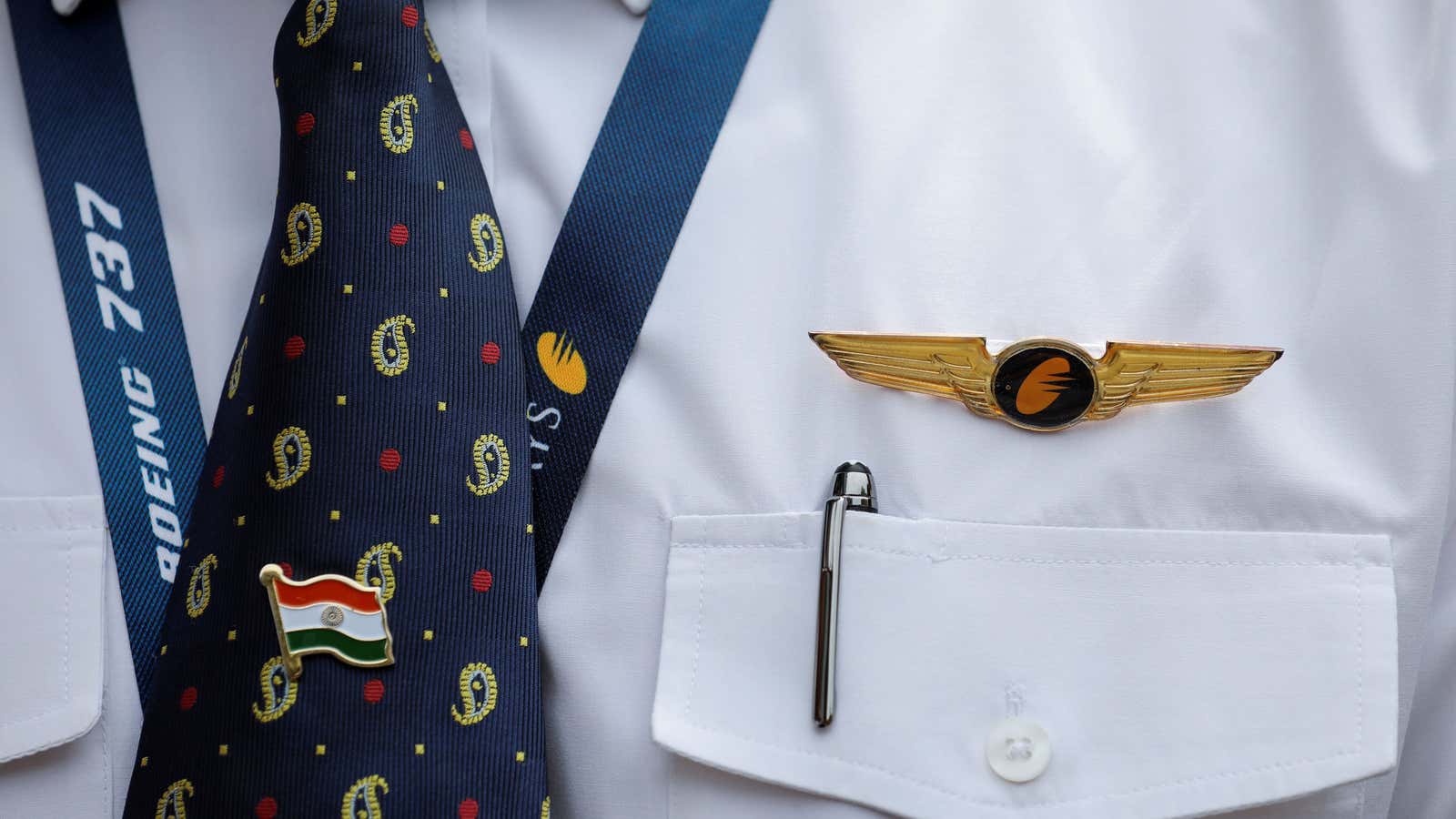Once synonymous with glamour and generous perks, jobs in Indian aviation are now giving nightmares to its thousands of employees.
The sector’s recent turmoil has left thousands of professionals in a financial lurch. While staff of the temporarily-grounded Jet Airways haven’t been paid their dues for months, debt-laden national carrier Air India, too, has been defaulting on salaries. Last week, India’s state-owned helicopter service Pawan Hans, too, announced that the company would be unable to pay April salaries to its staff due to an “uncomfortable financial position.”
While there are the glass-half-full types, who say this is a passing phase, by most accounts, it’s not the best time to think of an aviation career.
A study conducted in March this year by the online job portal Indeed India claimed that vacancies for flight attendants have fallen by 80% in the five years till January 2019. The steepest decline was seen between 2017 and 2018, when postings were down by almost 88%. The number of jobs seekers, however, continued to rise, the portal noted.
The situation has taken a turn for the worse, after the grounding of Jet on April 17. The crisis has led to an over supply of aviation talent, according to the Mumbai-based hiring firm Headhunters. Experts are now advising Jet employees to accept any offer available irrespective of the salary package, or to even change career paths.
“Jet staff with core skills (pilots and cabin crew) should focus on taking available options with domestic and international airlines. It’s possible that the pay and benefits may not be at a par with current packages. Non-core staff in support functions should consider other industries,” Rituparna Chakraborty, co-founder, TeamLease Services told Quartz.
Devoid of choices, many are doing just that. “My colleagues with monthly salary of Rs30,000 are taking pay cuts and accepting offers with a salary of even Rs15,000. Everyone wants a steady income and are grabbing whatever (jobs) they can,” a Jet employee told Quartz on the condition of anonymity.
Ray of hope
But this does not mean the sun has set on the industry.
Airlines expanding their fleet and launching new routes will create demand for an estimated 17,000 pilots by 2028, according to a March 8 report by the Sydney-based research firm Centre for Asia Pacific Aviation (CAPA). Besides pilots, carriers will also require an additional 109,000 employees by then, the report added.
Mohit Bharti, India director of the jobs and recruitment agency Michael Page, echoes the same sentiment. “Currently, there are plenty of professionals willing to take a salary cut of up to 50% to grab a job. However, this is only for the short term. We see demand improving as the aviation sector is poised to grow,” he told the news agency PTI.
And this may have already started playing out.
India’s largest airline by market share, IndiGo, is facing an acute pilot shortage, and is eager to hire and retain talent. On April 25, it announced the first salary hike for its staff in three years. In February this year, the domestic carrier was cancelling more than 30 flights a day because of the shortage of pilots.
Others too are fishing for talent. Vistara, a joint venture between Tata Sons and Singapore Airlines, and the no-frills carrier SpiceJet have expanded their fleet, after Jet halted operations.
